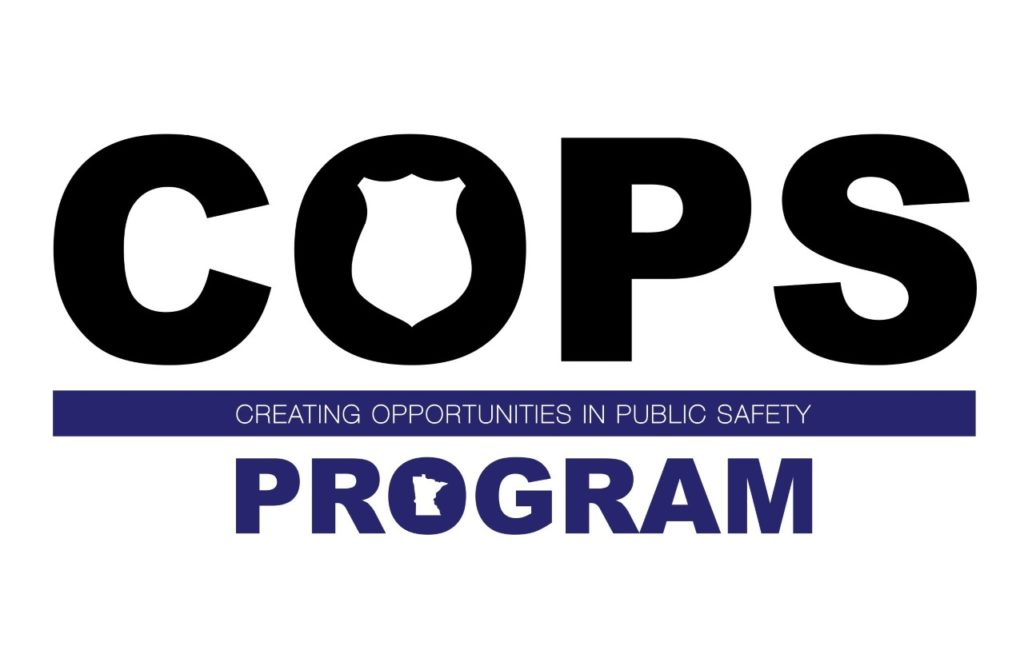ST. PAUL, MN, February 3, 2022 – Senate Republicans rolled out a $65 million C.O.P.S. Program, which stands for “Creating Opportunities in Public Safety.” The proposals focus on recruitment to address the peace officer shortage affecting the entire state. The six different bills help young people get their degree in law enforcement, provide opportunities for nontraditional entrants into policing, and fund a marketing campaign as well as continuing education to highlight the honorable profession and long-term benefits of a career in law enforcement.
“Across the state, we’ve been hearing from law enforcement agencies that are struggling with staff. Law Enforcement officers are leaving the force in far higher numbers than they are applying to join the force and it’s hitting a critical stage for their ability to provide for safe communities,” Senate Majority Leader Jeremy Miller (R-Winona) said. “This isn’t an accident. These losses are a direct result of the ‘Defund the Police’ and anti-police rhetoric, that has demonized police officers and left them personally demoralized and their agencies diminished in size and standing. We couldn’t disagree more with such rhetoric,” Miller concluded.
Across the nation, law enforcement positions are opening up faster than they can be replaced by retirement or resignation. In 2021 alone, The Star Tribune reported Minnesota saw 32 Police Chiefs retire. The Peace Officer Standards and Training (POST) Board Job board shows openings for licensed peace officers in at least 65 agencies. Minneapolis and St. Paul have nearly 300 open positions to fill as of last month.
To address these immediate needs Senator Karin Housley (R- Stillwater) proposed $1 million for the Department of Public Safety to develop and conduct an advertising campaign to elevate the law enforcement profession. “Our law enforcement officers have given so much to our communities — they have consistently been on the front lines of every crisis facing our state. Though their heroic deeds keep Minnesotans safer in their day-to-day lives, their actions oftentimes go unnoticed and unrecognized. It’s absolutely time that we spread the word of all the good work these brave men and women have done and continue to do. It is my hope that we can elevate and recognize all law enforcement professions and spread the word of the rewarding and honorable nature of this career path,” Housley said.
The award-winning Pathways to Policing program will receive $1.5 million in funding when the bill by Senator John Jasinski (R- Faribault) is passed. Pathways to Policing supports non-traditional candidates for law enforcement who already have an associate degree in another discipline by reimbursing agencies up to 50% of the costs for a non-traditional candidate to complete an alternative education program to become a licensed peace officer in the state of Minnesota. “We desperately need to increase our police presence, but it’s really hard to find people willing to sign up for the job. These are programs with a proven track record of success that will help us recruit and train more prospective officers – regardless of their background,” Jasinski said.
Jasinski also introduced a bill for $20 million to the Workforce Scholarship Program aimed at increasing enrollment in associate degree programs in law enforcement. According to MinnPost, drastic drops in enrollment in these important programs means there are fewer qualified candidates to fill open positions. The allows campuses across the state to recruit local students who can meet POST Board requirements and become police officers in our communities.
“We need to make sure we have the resources available to get officers on the streets,” Senator Justin Eichorn (R- Grand Rapids) said. “The Defund the Police movement’s disrespect of our peace officers has led to fewer students pursuing a career in law enforcement. These grants will support the next generation of peace officers who will keep our communities safe.” Eichorn’s proposal spends $20 million for grants to students across Minnesota who are pursuing degrees in law enforcement at an accredited institution. The grant would be $1,500 per year for up to two years for eligible recipients.
To help improve the attractiveness of law enforcement as a long-term career, Senator Roger Chamberlain (R- Lino Lakes) is introducing a bill for $2.5 million in tuition reimbursements for recently licensed peace officers and those currently in the pipeline to become officers. An officer is eligible once they have gone through the education requirements and put in one year of work with an agency; they must also remain in good standing. “Being a cop is a tough job, and with the anti-police rhetoric of the last couple years it’s no surprise that folks aren’t exactly clamoring to become officers – especially with the schooling required just to get their foot in the door,” Chamberlain said. “If a person is willing to step up to keep our communities safe, then we will help out with their tuition to show our appreciation.”
Police chiefs and public safety departments across the state are overstretched and burning out. “The rhetoric and negativity surrounding law enforcement went way too far in some Minnesota communities this past year,” Senator Paul Gazelka (R-East Gull Lake) said. “This demonization has crippled many departments’ ability to retain and recruit peace officers by discouraging competent and selfless people from entering a thankless position. To counteract that, we’re going to work re-fund the police and show qualified candidates just how badly we need their support.” Gazelka’s bill provides $20 million towards bonuses of up to $10,000 for newly hired peace officers across Minnesota. The bonuses may only be awarded after an officer has served a year with the hiring agency and may only be used for newly licensed peace officers.
“The bills we’re offering today are just one part of a comprehensive effort to support safer communities. We’ll be offering additional materials on retaining our current peace officers pool, addressing gaps in crime statutes, and what we can do to better hold those criminals accountable when they violate those statutes,” Miller concluded.


Leave a Reply